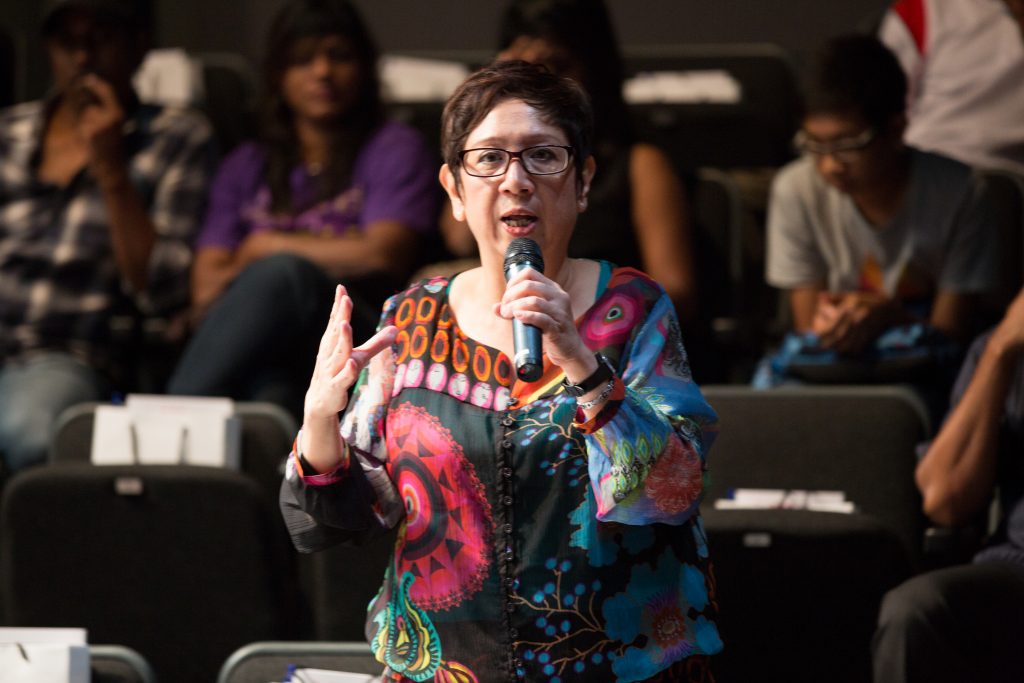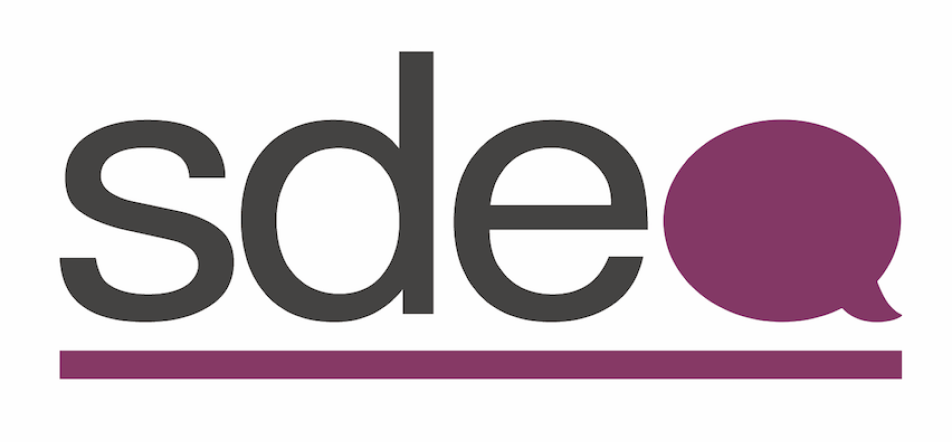SDEA Spotlight: Peggy Ferroa
by SDEA

Peggy Ferroa is a performance maker and applied theatre practitioner who works in community and educational settings. She has been an SDEA member since 2002 and has sat on the committee being a committee member, secretary, vice president and president.
1. What are you working on at the moment?
I have a commissioned item by the Singapore Symphony Orchestra (SSO) for the Civic District Outdoor Festival. This free event happens 20 Jan, at 5pm and 6.30pm at the atrium of the Victoria Concert Hall. I'm working with two SSO musicians - a flautist and a cellist and five children, of which one is on the autistic spectrum, and another, visually impaired. Each person in the group shares their relationship with music. It's called 'Music and Me' and it comprises short monologues supported with music and two songs.
Happening almost at the same time in January is another commission, an interactive play I'm writing and directing about volunteerism and philanthropy. It's a closed door event and I'm putting community actors from The Glowers Drama Group on stage in front of people from higher management to raise questions on what makes good giving and good Corporate and Social Responsibility.
I'm also in early planning stages of a school assembly show on respectful relationships that starts a two year run in March. Lastly, I'm revising my lesson plans for a new group of inmates with my ongoing programme in prison. My work with the Singapore Prison Service started in 2011 when I designed the Theatre Arts Programme and with the exception of 2 years, I have been running it till today.
**

- What’s the direction of your work? Has it changed over the years?**
My work now has more reflective elements for myself, my participants and audience. I also work with other art forms and sometimes, you will not see the drama, but if you care to look and wonder, you will see the thinking of a theatre artist or educator behind it. I'm also not so bothered now about overly explaining my outcomes because sometimes, there are no words to do justice, you just have to point people in the right direction to look and help them make a connection for themselves. I guess the biggest change for me is, I have given myself more time to do things, and that change has been good.
3. What is a dream project that you hope to do?
All my projects are dream projects! Why chase dreams when you are the only one who can make them come true? You can't control what you dream of in your sleep, but in your waking hours, you can make big or small parts of your dreams come true. Daydreaming helps immensely in the process.
4. How did you start out doing what you do?
I started out doing work on radio, then moved on to do TV. In the late '90s, someone asked me to do a theatre project, which eventually led to more work on stage and then, drama education. I've never looked back.
**

- How do you keep your work fresh?**
By spending time observing who or what's in front of me, then fantasising. Sometimes I don't fantasise, I look at working within perimeters and boundaries, and that's really exciting!
6. What do you think makes a perfect drama educator?
One who learns from others all the time and contextualises for his/her own needs, contemplates a lot, refrains from judging too quickly and is flexible enough with what ever is given - information, participants and yes, even budget, to create something that is satisfying for all parties . The perfect drama educator attends with the heart and mind to whoever is in front of him or her.
7. Why is drama important? Why should it be taught in schools?
Drama teaches you about yourself, and the self never remains constant. It responds to other living beings, the environment, memories, emotions. While some of these things can be learned through human interaction, drama helps you frame, yet look at all points of view, helps you give words, yet allows you to be ambiguous. It's safe, it's forgiving, it's nurturing. As many have said, drama is an agent for change. It should not only be taught in schools, but in communities where education has failed or passed by. It's more useful there.
8. Who was the drama educator that has the most impact on you?
Prof Joe Winston. He is a sensitive, thinking educator who very quickly helps makes sense of things for whoever is in his class or discussion. The way he immerses himself in play is quite something as well. However, what stands out for me, is his humility and openness. You can be as smart and as skilful as anything, but if there is no humility and openness, how can you help others with drama?
**

- What is your most memorable moment in the classroom/on stage?**
In a production in 2003 with a near full house, I had finished my lines in a scene and the actor who was supposed to come on, didn't. I had run out of lines. I made a measured exit, went off stage and hissed at the stage manager to get the next actor. I made an excuse to return on stage to save the other actor with some inane gossip about another character until the newspaper reading actor dashed on. This moment has marked the careers of 3 of us and we love each other dearly for it.
10. Share a drama activity that you love to do.
Grandmother's Footsteps - I can play it for play's sake for any of the communities I work with, or I can use for participants to experience tension, see dynamism in stillness and with variations, observe how space can be used.
11. What do you hope to see in Singapore's drama/theatre landscape in future?
That people see that with each artist, comes his or her own personality, ethos and work ethic as unique as a thumbprint. The purpose of the work must fit the artist and a realistic outcome for its participants. Both the artist and the client must agree on this and know how to walk away if there is no common purpose. Most times now, we are trying to fit into each others' moulds.
12. In one word, sum up your drama education journey.
Fulfilling



